The Tragedy of a Single Story
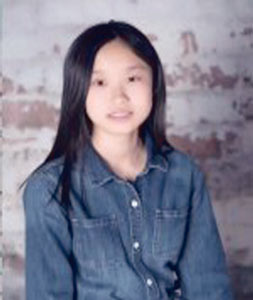
Christina Peng / Beckman HS 10th
Stories are powerful. Because Chimamanda only read foreign books as a child, she became convinced books had to feature foreign characters and had to be about subjects she could not personally identify with.
It was only until she discovered African books and writers like Chinua Achebe and Camara Laye that Chimamanda realized girls like her could also exist in literature. Her discovery saved her from the dangers of a single story to what books are.
Ellen Oh, president of the nonprofit We Need Diverse Books, protested for more diversity in children’s literature. She cited a 2014 Bookcon meeting where the most esteemed authors included only white men. The homogeneity in children heroes can impact young readers significantly. Diverse books teach kids it is okay to be different and no matter who they are and what they look like, they can be heroes too.
As response to the homogeneity in book characters, an LGBT teen said, “Maybe I wouldn’t have tried to kill myself if only I had seen that it was OK to be gay, it was OK to be trans.”
The single story creates stereotypes. And the problem with stereotypes is not that they are untrue, but that they are incomplete. They make one story become the only story. In a single story, children are taught there was no possible connection of various people as human equals.
Harvard panelists are campaigning for children’s books as a means to teach empathy as an inclusion by adding more authors from different cultures with different ideas into the author pool.
What we need to show the children is that other people are not something to be afraid of or hated. We need to show them that the other is a person just like you, just like me. We all share a common humanity despite all the hate, violence, and disasters erupting around us.
<Christina Peng / Beckman HS 10th>
스마터리빙
more [ 건강]
[ 건강]이제 혈관 건강도 챙기자!
[현대해운]우리 눈에 보이지 않기 때문에 혈관 건강을 챙기는 것은 결코 쉽지 않은데요. 여러분은 혈관 건강을 유지하기 위해 어떤 노력을 하시나요?
 [ 건강]
[ 건강]내 몸이 건강해지는 과일궁합
 [ 라이프]
[ 라이프]벌레야 물럿거라! 천연 해충제 만들기
 [ 건강]
[ 건강]혈압 낮추는데 좋은 식품
[현대해운]혈관 건강은 주로 노화가 진행되면서 지켜야 할 문제라고 인식되어 왔습니다. 최근 생활 패턴과 식생활의 변화로 혈관의 노화 진행이 빨라지고
사람·사람들
more많이 본 기사
- [특파원시선] 외식비 줄이는 미국… ‘30% 요구’ 팁 공포도 한몫?
- 내년 중간선거 낙관못하는 트럼프… “경제성과 전달에 시간 걸려”
- “사초 쓰겠다”던 내란특검 ‘180일 대장정’ 마침표…24명 재판에
- “머스크처럼…” 미국인 대리모 통해 2세 퍼트리는 中재벌
- 주말 濠·美서 총기사건…시드니 11명·브라운대 2명 사망
- 트럼프 특사·젤렌스키 ‘베를린 회동’…우크라 종전안 진전되나
- 인도 투어 나선 축구스타 메시…경기장 조기 퇴장에 팬들 난동
- 정용진 신세계그룹 회장, 밴스 부통령 성탄절 만찬 참석
- 도쿄행 유나이티드 항공편, 엔진 고장에 워싱턴으로 회항
- 뉴욕 백화점서 아기 기저귀 갈던 엄마, 정신질환자에 흉기피습
- 윤영호, ‘플리바게닝’ 노렸나…자충수 된 ‘민주당 금품’ 진술
- 10석 안팎까지?…내년 한국 지방선거 때 ‘미니 총선급’ 재보선 가능성
- 오세훈 “내집 마련 꿈, 10·15대책에 짓밟혀…규제 완화해야”
- “트럼프, 바이든 데자뷔인줄” 취임 1년새 고령 논란·지지율 뚝
- 변요한♥티파니, 약지에 ‘커플링·포르쉐’..열애 中 티냈다
- 아이비리그 브라운대서 총격…최소 2명 사망, 8명 중상
- ‘손흥민 벽화 3일 만에 그린’ 예술가, SON과 감격 만남 후 “내 아들의 영웅이자 아시아 유산” 찬사
- 1124일만 선고.. ‘20억 횡령 인정’ 박수홍 친형 결론은?
- ‘김민재 점점 독일 국대에 밀린다’ 독일 현지, 타 향해 연일 찬사... “뮌헨 최고의 영입, 진정한 수비 리더”
- 조미김, 미국 수출관세 ‘면제’됐다…K-김 최대시장서 날개
- 트럼프, 시리아서 IS 공격으로 美병사 사망하자 “강력 보복”
- 경찰직무집행법 통과로 1차 필버 종료…연말 ‘필버 재격돌’ 전망
- 한소희, 韓 떠나기 전 의미심장 SN… 1
- AI 시장 흔들렸다…챗GPT 독주 속 제미나이 급부상
- ‘인니 수마트라섬 대홍수’ 사망자 1천명 넘어…218명 실종
- 트럼프 “인디애나 선거구 조정 반대한 공화의원들, 교체돼야”
- 김연아♥고우림, 사랑하니 닮아가네..예쁜 커플사진
- 국방부 “시리아서 공격받아 미군 2명 사망…공격범 사살”
- 韓 탁구 최초 역사… 신유빈-임종훈, 세계랭킹 1위+파리올림픽 金 듀오 꺾고 WTT 파이널스 우승
- 내란특검, 김용현 추가 기소… “HID요원 등 명단 노상원에 넘겨”
- 연말연시 과음 후 속쓰림…단순숙취? “급성염증 신호일수도”
- 지선 손 맞잡을까…통일교 특검으로 거리 좁히는 국힘·개혁신당
- 아이비리그 브라운대서 총격…최소 2명 사망, 8명 중상
- ‘아프리카에 당한 기억’ 홍명보, ‘1승 제물’ 남아공 경계했다... 박문성도 “2014 월드컵 악몽 떠올라”
- 與, 은행법 처리뒤 ‘경찰관직무집행법… 2
- “다카이치 ‘대만발언’은 對中전략 부재 탓…정상 만나야 해결”
- 이정후 태극마크 ‘청신호’ 떴다! 스타 출신 SF 사장 “야수보단 투수가 WBC 위험”→걸림돌 사라졌다
- 美, 카리브해 군사자산 확대… “베네수엘라에 지상·전자전 위협”
- 트럼프 “태국·캄, 교전 중단 합의”… 1
- 시리아서 미군 피격, 3명 사망… “시리아군 내 극단주의자 소행”
1/5지식톡

-
 테슬라 자동차 시트커버 장착
0
테슬라 자동차 시트커버 장착
0테슬라 시트커버, 사놓고 아직 못 씌우셨죠?장착이 생각보다 쉽지 않습니다.20년 경력 전문가에게 맡기세요 — 깔끔하고 딱 맞게 장착해드립니다!장착비용:앞좌석: $40뒷좌석: $60앞·뒷좌석 …
-
 식당용 부탄가스
0
식당용 부탄가스
0식당용 부탄가스 홀세일 합니다 로스앤젤레스 다운타운 픽업 가능 안녕 하세요?강아지 & 고양이 모든 애완동물 / 반려동물 식품 & 모든 애완동물/반려동물 관련 제품들 전문적으로 홀세일/취급하는 회사 입니다 100% …
-
 ACSL 국제 컴퓨터 과학 대회, …
0
ACSL 국제 컴퓨터 과학 대회, …
0웹사이트 : www.eduspot.co.kr 카카오톡 상담하기 : https://pf.kakao.com/_BEQWxb블로그 : https://blog.naver.com/eduspotmain안녕하세요, 에듀스팟입니다…
-
 바디프렌드 안마의자 창고 리퍼브 세…
0
바디프렌드 안마의자 창고 리퍼브 세…
0거의 새제품급 리퍼브 안마의자 대방출 한다고 합니다!8월 23일(토)…24일(일) 단 이틀!특가 판매가Famille: $500 ~ $1,000Falcon: $1,500 ~ $2,500픽업 & 배송직접 픽업 가능LA…
-
 바디프렌드 안마의자 창고 리퍼브 세…
0
바디프렌드 안마의자 창고 리퍼브 세…
0거의 새제품급 리퍼브 안마의자 대방출 한다고 합니다!8월 23일(토)…24일(일) 단 이틀!특가 판매가Famille: $500 ~ $1,000Falcon: $1,500 ~ $2,500픽업 & 배송직접 픽업 가능LA…
케이타운 1번가
오늘의 1면
오피니언

22기 LA평통 출범에 거는 기대

연말 시즌 사기·범죄 경계해야
 메건 매카들 워싱턴포스트 칼럼니스트
메건 매카들 워싱턴포스트 칼럼니스트 [메건 매카들 칼럼] 장편영화의 마지막 챕터인가
 김미선 서북미문인협회 회장시인
김미선 서북미문인협회 회장시인 [한국춘추] 하늘을 계산한 사람들, 칠정산
 이희숙 시인·수필가
이희숙 시인·수필가 [금요단상] 그을린 자리에서 다시
 심상용 / 서울대 미술관장
심상용 / 서울대 미술관장 [미술 다시보기] 지옥에 대하여
 서정명 / 서울경제 기자
서정명 / 서울경제 기자[만화경] 주한미군과 ‘도련선 리스크’
 한 영 재미수필가협회 회장
한 영 재미수필가협회 회장 [한영의 독서칼럼] 불안한 사람들
 정영현 서울경제 테크성장부장
정영현 서울경제 테크성장부장 [여명] 콘크리트가 데이터가 됐을 뿐, 달라진 게 없다
1/3지사별 뉴스

“마약밀매·인신매매 등 국제범죄 척결” ‘국토안보 태스크포스’ 뉴욕지부 출범
연방 국토안보부가 10일 ‘국토안보 태스크포스’(HSTF) 뉴욕지부를 출범시켰다.HSTF는 마약 카르텔, 인신매매, 자금세탁, 갱단 등 국제범…
‘오바마케어 보조금’ 올해 말 종료 가능성 ↑ 커져

한국 교사 10명, 페어팩스 초등교 배치
‘글로벌 앰버서더 티처스 프로그램’(Global Ambassador Teachers Program)은 국제 교사 교환 프로그램 가운데 하나로 …
김찬수씨, 포토맥 포럼에 2천달러 기부

아이비리그 브라운대서 총격…최소 2명 사망, 8명 중상
13일 동부 ‘아이비리그’ 명문대 중 하나인 브라운대 캠퍼스 내에서 총격 사건이 벌어져 다수의 사상자가 나왔다.AP통신과 CNN방송 등 언론에…
<부음> 이명무 전 SF 체육회장 부인상

오늘 하루 이 창 열지 않음 닫기 






























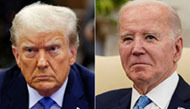




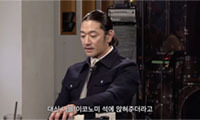
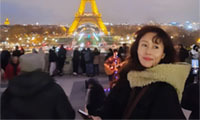
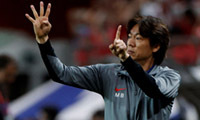















.png)


댓글 안에 당신의 성숙함도 담아 주세요.
'오늘의 한마디'는 기사에 대하여 자신의 생각을 말하고 남의 생각을 들으며 서로 다양한 의견을 나누는 공간입니다. 그러나 간혹 불건전한 내용을 올리시는 분들이 계셔서 건전한 인터넷문화 정착을 위해 아래와 같은 운영원칙을 적용합니다.
자체 모니터링을 통해 아래에 해당하는 내용이 포함된 댓글이 발견되면 예고없이 삭제 조치를 하겠습니다.
불건전한 댓글을 올리거나, 이름에 비속어 및 상대방의 불쾌감을 주는 단어를 사용, 유명인 또는 특정 일반인을 사칭하는 경우 이용에 대한 차단 제재를 받을 수 있습니다. 차단될 경우, 일주일간 댓글을 달수 없게 됩니다.
명예훼손, 개인정보 유출, 욕설 등 법률에 위반되는 댓글은 관계 법령에 의거 민형사상 처벌을 받을 수 있으니 이용에 주의를 부탁드립니다.
Close
x